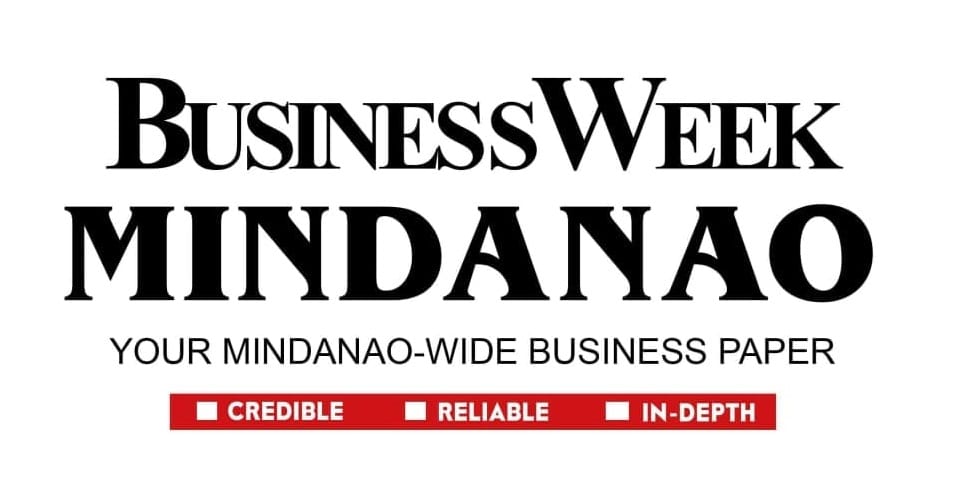The unparalleled infrastructure investments under the “Build, Build, Build” program, the enactment of the law that clears the way to the long-sought return of the coco levy funds to the country’s 2.5 million coconut farmers, and the series of tax reforms complemented by the accelerated digital transformation of the government’s revenue agencies are among the lasting legacies of the Duterte administration on the economic front, Finance Secretary Carlos Dominguez III said Monday.
Dominguez said these initiatives plus the other key economic accomplishments under the term of President Duterte marked the country’s turn “towards more inclusive growth and prosperity,” and makes the outgoing administration “among the most productive in our history.”
Several of the game-changing reforms carried out by President Duterte had languished in the congressional shelves for decades and were only enacted into law during his term as a result of his “bold leadership and strong political will,” Dominguez said.
These include the Rice Tariffication Law (RTL), which was implemented after more than 30 years of failed attempts by previous administrations, and the country’s most Comprehensive Tax Reform Program (CTRP) ever that lowered tax rates both for individuals and corporations, he said.
Dominguez said the positive impact of these measures can be seen in the economy’s growth of over 6 percent annually before COVID-19 struck in 2020, and in the country’s financial strength that enabled it to weather the worse of the pandemic-induced global crisis.
“The next administration will inherit many hard-won reforms. They will assume the office with the basic groundwork for rapid and inclusive growth already in place. President Duterte’s final legacy is a confident and hopeful Filipino people earnestly looking to a future of sustained progress,” said Dominguez, who presented the achievements of the Economic Development Sector during the Duterte Legacy Summit held today at the Philippine International Convention Center (PICC).
Rosario Santos, a 65-year old sari-sari store owner in Marikina City is among the direct beneficiaries of President Duterte’s economic reform initiatives.
Her Cha-Cha Sari-Sari Store, which had thrived for more than 30 years and enabled her family to send her children to c0llege, was severely damaged when typhoon Ulysses hit the country in November 2020.
Santos was able to qualify as a grantee under the Pangkabuhayan sa Pagbangon at Ginhawa (PPG) program of the Department of Trade and Industry (DTI) and received P8,000 in capital, which allowed her to recover and continue her store’s operations.
Santos thanked the government for the assistance that she and other micro entrepreneurs had received under the Duterte administration.
Dominguez said the reforms put in place on the Duterte watch have bolstered the country’s ability to recover and rebuild from the pandemic.
The enactment of the Corporate Recovery and Tax Incentives for Enterprises Act (CREATE), which lowered corporate income taxes (CIT) and redesigned the fiscal incentives system; and the amendments to the Retail Trade Liberalization Act (RTLA), Public Service Act (PSA) and Foreign Investments Act (FIA) will bring in the high-value investments that the country needs to upskill the country’s workforce and further modernize the economy, he said.
“I am extremely proud to have served under this President. Although this was a period challenged by a pandemic, it was also a time that the government firmly demonstrated that it could respond decisively to any emergency,” Dominguez said.
With a stable fiscal position and investment-grade credit ratings, the Duterte presidency was able to move quickly in mobilizing a total of P3 trillion in financing for the country’s COVID-19 response, which funded the country’s largest social protection program in history totaling P250 billion; and enabled the government to successfully negotiate funding to procure vaccines.
Dominguez noted that despite the increased borrowings to procure vaccines and provide relief to vulnerable sectors while maintaining economic investments, the country’s debt level remains sustainable.
“Throughout the crisis, our historic high credit ratings were maintained amidst downgrades among our peers globally. This is a testament to our excellent record of prudent spending and fiscal discipline,” he added.
He enumerated several of the unprecedented economic achievements realized by the Duterte administration in just six years in office. These include:
· Passage of the Ease of Doing Business (EODB) Act, which paved the way for improved and efficient delivery of public services;
· Enactment of the Philippine Identification System Act (PhilSys), which brings the country closer to the goal of achieving e-governance and greater financial inclusion among Filipinos.
As of May 3, a total of 64.8 million individuals nationwide have registered for the national ID, with 7.9 million previously unbanked registrants soon to be part of the formal banking system through the efforts of the Land Bank of the Philippines (LandBank);
· Establishment of the Overseas Filipino Bank (OFBank) dedicated to the needs of Filipinos working abroad.
The OFBank, a fulfillment of President Duterte’s 2016 campaign promise, is officially the first branchless digital-only bank in the country. It now serves overseas Filipinos in 116 countries;
· Implementation of the RTL, which opened up the Philippine rice market and, in turn, lowered the price of the country’s staple food for more than 100 million Filipinos and kept the rice prices stable.
Rice is no longer a major inflation contributor and palay farmers benefit directly from the law by providing them at least P10 billion each year for mechanization, high-quality seeds, access to credit and training;
· Enactment of the Coconut Farmers and Industry Trust Fund (CFITF) law after many years of intense political debate.
This marks a promise fulfilled by the President who, in his 2019 State-of-the-Nation Address (SONA), vowed to return these funds taken arbitrarily from the pockets of Filipinos back to their true owner, Dominguez said;
· Implementation of the Tax Reform for Acceleration and Inclusion (TRAIN) Act, which reduced the personal income taxes (PIT) for 99 percent of taxpayers, giving them much-needed relief after 20 years of non-adjustment.
Through TRAIN, the government has basically given out a 14th-month pay every year to wage earners;
· Three-time increase in the excise taxes for “sin” products—cigarettes, e-cigarettes and vapor products, alcoholic beverages—which has improved funding for another Duterte landmark measure—the Universal Health Care (UHC) Program;
· Hefty investments in social services to boost human capital development through government programs and by infusing the largest-ever capital to the LandBank, Development Bank of the Philippines (DBP) and Philippine Guarantee Corp. (PhilGuarantee).
The government provided healthcare coverage, financing for enterprises and local government units (LGUs), housing, unconditional cash transfers (UCTs), quality jobs, free education in state universities and colleges (SUCs) and free irrigation water;
· The “Build, Build, Build” program funded through robust pre-pandemic revenue flows and concessional financing.
One of the lasting legacies of President Duterte, “Build, Build. Build” increased infrastructure spending to above 5 percent of gross domestic product (GDP), double the level recorded by the previous four administrations, and provided quality jobs to over 6.5 million workers; and
· Accelerated digitalization of the Bureaus of Internal Revenue (BIR) and of Customs (BOC) to enhance tax administration and reduce corruption.
“Through bold tax reforms and better tax administration, we were able to raise our revenue effort to a two-decade high and our debt-to-GDP ratio to a historic low,” Dominguez said.
TRAIN and the other enacted packages of the CTRP enabled the government to raise P575.8 billion in incremental revenues during the first four years of their implementation—from 2018 to 2021.
This has resulted to high credit ratings for the country, which not only brought down borrowing costs and allowed bond issuances with very tight spreads, but also benefited private borrowers through low interest rates, Dominguez noted.
“I could go on and on with all of the Duterte administration’s unprecedented economic achievements realized in just six years. But our time is limited,” Dominguez said.
The other Cabinet Secretaries also presented the Duterte administration’s accomplishments in the sectors of Security, Justice, and Peace; Transportation; Climate Change Adaptation and Mitigation, and Disaster Risk Reduction; Participatory Governance; Human Development and Poverty Reduction; and COVID-19 Response.
-oOo-





